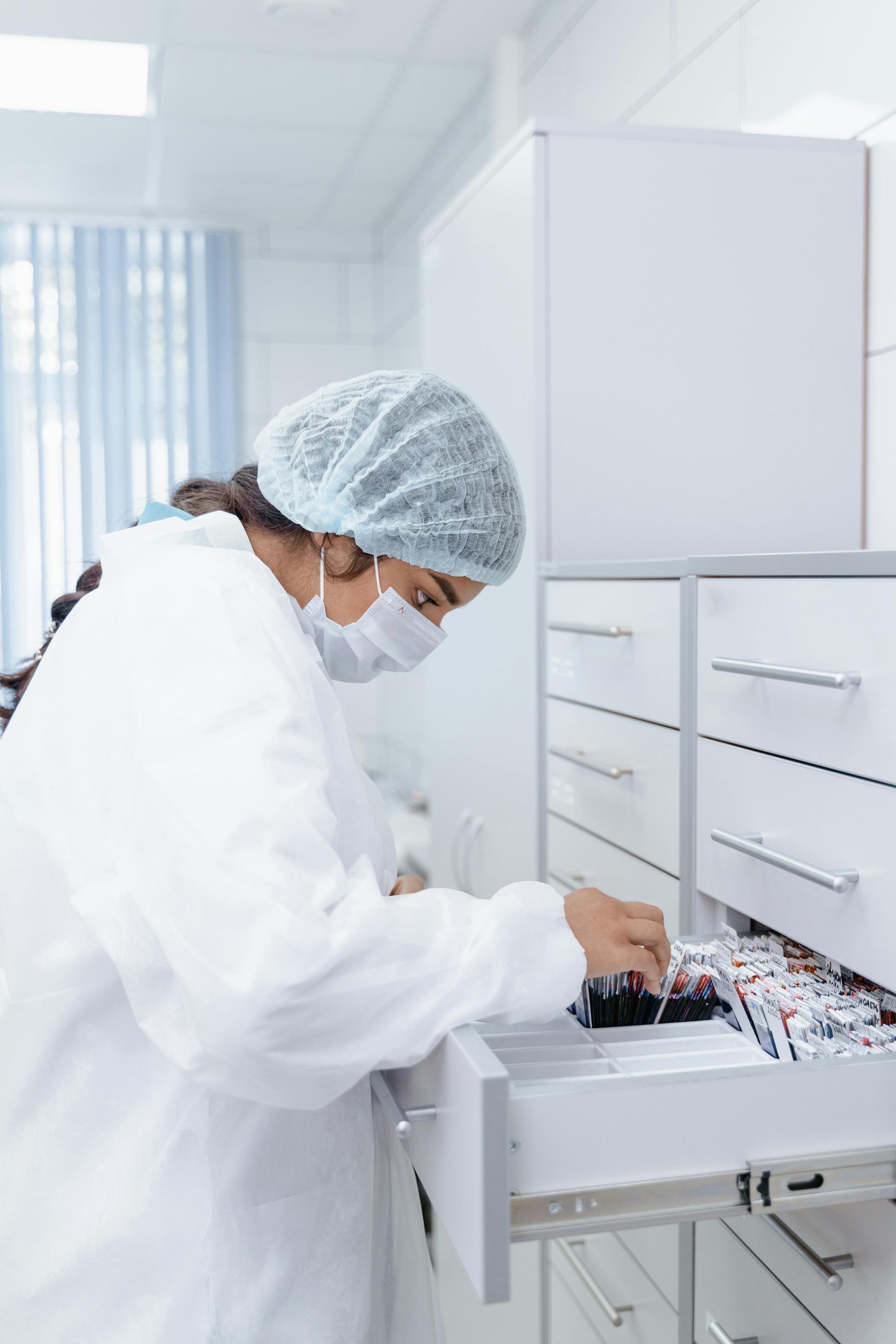GMP Certification in USA and Europe: A Complete Guide
All you need to know about GMP certification in the Pharmaceutical Industry

Good Manufacturing Practices
Good Manufacturing Practices (GMP) is a set of standards created to instruct the processes of manufacturing a wide range of products. Becoming and remaining GMP compliant is increasingly essential for manufacturers in various industries.
Process standardization is one of the most essential factors in ensuring consistency in manufacturing. And when it comes to manufacturing pharmaceutical products, medical devices, skin products, and cosmetics, consistency is everything.
As a result, the Food and Drug Administration (FDA) formalized GMP to help companies in all industries ensure they consistently manufacture quality products. Keep reading to learn more about these quality standards and why
GMP certification is vital for agencies.
What is GMP in the Pharmaceutical Industry?
Manufacturers in the pharmaceutical industry must familiarize themselves with international Good Manufacturing Practices (GMP), the official standards set by the FDA to specify drug quality based on the compliance level of the producer. Even though this is a United States agency, GMP has become popular in many countries globally.
Most drug consumers have no way of verifying the effectiveness of their medications, so these practices function essentially as consumer protection. Becoming GMP certified is one of the best steps you can take as a pharmaceutical manufacturer for several reasons.
What is Covered in GMP?
GMP sets many standards to guide the process of manufacturers to minimize defects or contamination that can create severe consequences for end users.
A GMP certification course aims to impart specific knowledge to employees and teams so they can enact these standards in their workplace. Topics covered include adequate maintenance of equipment or utensils, expected cleanliness of the manufacturing facility, and adequate quality control processes.
However, it’s important to find specific courses suited to your industry. A one-size-fits-all approach often means that manufacturers are ill-equipped to meet the specific challenges of producing a range of products, from biopharmaceuticals and biotechnological medicine to cosmetics and over-the-counter materials.
What Does It Mean to Be GMP Certified?
What is GMP certification? A Good Manufacturing Processes (GMP) certificate is an essential component of the manufacturing process, protecting you, your partner labs, and your reputation and reputation as a quality pharmaceutical manufacturer.
Earning a good manufacturing practices certificate will set you apart from your uncertified competitors, avoid potential fines, and ensure consumer safety.
Is GMP Certification Important?
What is a GMP certificate in the context of your business? The direct effects of GMP certification are staying in compliance and avoiding potential fines.
However, the meaning of GMP certified companies extends beyond simply staying compliant — GMP certifications signal to your peers and customers that your following industry best practices.
What Are the Benefits of GMP Certification?
GMP certification provides plenty of benefits that can help your entire business. Some benefits of receiving a GMP certification include the following:
- Promote proper quality control: Undergoing the GMP process means that your manufacturing is consistent and aligned with the best industry practices and that your advertising is accurate to the product you are selling.
- Enable process validation: Companies with the certification have their plants constantly monitored and controlled and have quality management systems and positive administrative protocols, such as worker sanitation, personnel qualification, and record keeping.
- Prevent cleanliness issues: Contamination with allergens or other harmful materials is common in the pharmaceutical industry. Therefore, GMP-compliant organizations always have hygienic work areas with controls in place to prevent cross-contamination.
- Ensure legal compliance: This international standard shows any regulatory authorities, from the US’s FDA to the EU’s EMA, that you take pharmaceuticals seriously and can proactively ensure compliance with high manufacturing standards.
- Promote a positive reputation: Drug companies will always look for GMP certification when choosing a manufacturer to produce their products. Customers likewise will see the FDA approval as a sign that the product is held to high standards and worthy of consideration.
- Build an incident response system: GMP requires companies to have established protocols in case mistakes occur. For example, records must be made of each step in manufacturing, and all infractions must be documented. A recall system is also mandatory so that defective batches can be withdrawn from sale and appropriate measures can take place to prevent future incidents.
- Stay up-to-date: Medical technology is constantly advancing, so it’s also worth taking into account current Good Manufacturing Practices (cGMP). This specification shows that not only are your processes aligned with GMP guidelines but also that they use the most up-to-date methods available.
It’s well worth earning a GMP certification to ensure customer safety, avoid costly fines, and improve your industry reputation.
What Are the Steps to Get GMP Certified?
Many companies are left wondering one thing: how to get GMP certification? The certification process involves a thorough audit of several aspects of your operations.
The audit process consists of the following:
- Analysis of quality systems
- Analysis of computer systems
- Manufacturing Facilities analysis
- Equipment log review
- Personnel review
- Final decision
How can you prepare for this audit? Providing GMP certification training prepares your workforce to enhance processes and workflows to pass the audit process. Therefore, completing a GMP certification course is strongly recommended before requesting an audit.
Knowledgeable instructors with real-world experience in good manufacturing processes teach CfPIE’s courses. In addition, our best-in-class courses have practical instruction for developing a good-standing workforce with the FDA.
Who Issues GMP Certificates in the USA?
Earning a GMP certification can help avoid potential fines and improve process efficiency while giving you a competitive edge over competitors lacking the certification.
GMP certificates are issued by authorized third parties rather than the FDA itself. The third party will conduct a thorough audit before issuing a GMP certification. Once complete, a certification will be issued, or you will receive a list of violations or deficiencies to address to guarantee you meet all GMP certification requirements.
GMP certification typically lasts for three years, after which you’ll need to conduct a new audit to renew your certification. This timeframe helps make sure companies maintain high standards.
Ready to Begin the Process of Getting GMP Certified?
Becoming GMP certified is crucial for any manufacturer of pharmaceuticals. Even if not strictly enforced, GMP certification improves the safety and efficiency of your manufacturing processes. As a result, you’ll gain a competitive advantage and ultimately better protect consumers.
Are you interested in learning more about our Good Manufacturing Practices certification? CfPIE offers its own facility certification program to streamline the GMP process.
We send our own staff to your factory floor to complete physical checks and auditing. From laboratory quality control to proper administrative practices, we will independently evaluate and ensure the compliance of your business and even offer remediation suggestions if we find any weaknesses.
In this post, we’ve explored many of the benefits of a GMP certification to your organization, so get in touch with us today. Our multi-step process begins with a Discovery Session over the phone or web conference.
Learn more about our GMP training programs and the certification process today.
The Center for Professional Innovation and Education (CfPIE) is the global leader in life sciences training, providing specialized courses for pharma/biotech, medical device, and skin/cosmetics topics. Classroom and custom on-site formats, and certification programs help improve personal skills, maintain regulatory compliance, and advance careers. Small class sizes and industry-active course directors promote a dynamic learning environment with excellent student-to-teacher interaction. More information: http://www.cfpie.com
Blog Categories
Stay Informed


